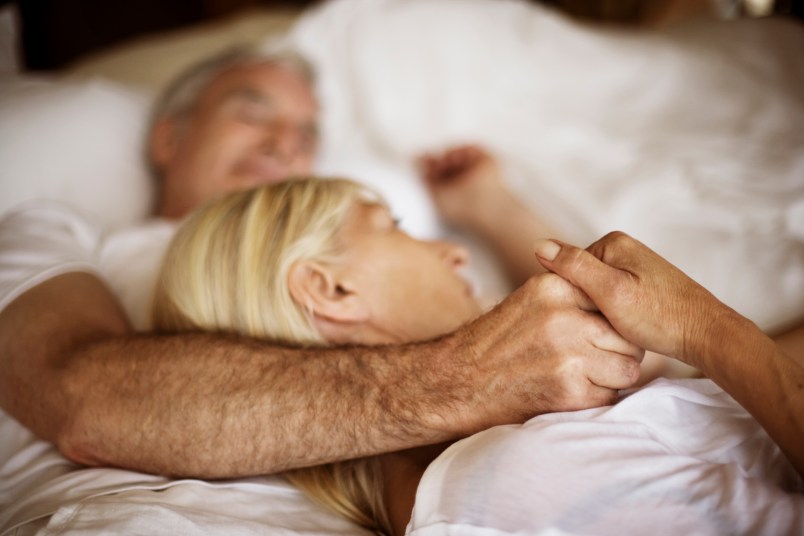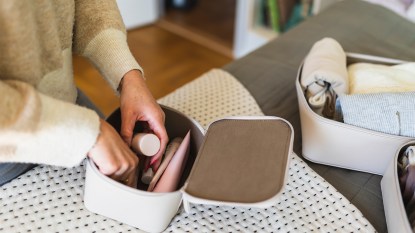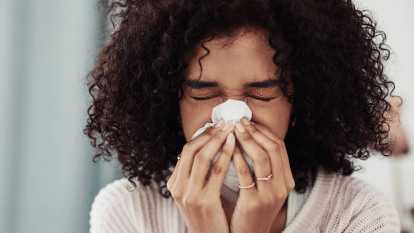Everything You Need to Know About Sex After Menopause

Sex after menopause can be complicated. Here, we got some expert advice from Dr. Nick Panay, a consultant gynecologist at Chelsea and Westminster Hospital NHS Foundation Trust, and Emma Ziff who is a sex and intimacy expert.
Sex has been really painful since I went through the menopause. What’s going on?
“Sadly, it’s very common for sex to become painful after menopause,” says Panay. “It’s estimated that 30 to 40 per cent of women will have problems with something called vaginal atrophy, which happens when the walls of your vagina become thinner and drier due to the loss of estrogen at menopause. This means sex can become uncomfortable and may even cause tearing.”
Can I do anything to make it more comfortable?
Yes — don’t assume you just have to put up with the problem. “We think only one to two in ten women see their GP about painful sex and vaginal dryness, but it’s important to get help as there’s a lot that can be done,” says Panay.
“Your GP can prescribe special lubricants that form hydrogen bonds with the vaginal skin so they keep tissue moisturized for longer. You can buy these specially-formulated lubricants online too!
A non-specific moisturizer such as KY Jelly can actually worsen discomfort, as it dries very quickly. Another solution is vaginal estrogen, which helps strengthen the skin and improve lubrication. Women worry about using hormones, but vaginal estrogen doesn’t get into the bloodstream and there are no known side effects — the only women who shouldn’t use it are those who’ve had hormone-dependent cancers, but your doctor will be able to advise if it’s safe for you.”
My libido’s crashed since menopause can I get it back?
“You’re not alone — it’s common for libido to decline at this time for a whole host of reasons,” says sex and intimacy expert Emma Ziff. “Some of these are physical, such as lack of estrogen, which can lead to reduced blood flow to the genital area and make sex less enjoyable. You could try a supplement contain an extract of French pine bark to help boost blood flow to the genitals, like this one from Viva Naturals ($39.99, Amazon).”
Emotional factors are likely to play a role in low libido, too. “You might worry your partner doesn’t find you as attractive as he once did or, if you’re with someone new, you may wish he could have seen you when you were younger,” says Emma.
‘’Tiredness can also have an impact, too. Getting fitter can help boost your confidence and energy levels — try yoga, which is great for improving body image.”
Your GP can help, too. Panay says, “HRT can increase libido, and sometimes we use testosterone, which is also important for female sex drive.”
I rarely want sex since I had a hysterectomy last year. What could help?
Physical recovery can take a long time, but women can sometimes be left with long-lasting emotional issues, too. “Any health issues connected to your pelvic area, or a hysterectomy, can make you feel less confident, and can affect the way you see yourself,” says Emma.
“Try to share your worries with your partner — sharing them might help him understand so he can support you, and it will also mean he’s less likely to feel rejected when you don’t want sex.” See your GP to rule out any physical cause behind your loss of sex drive. You may also benefit from talking things through with a therapist.
Menopausal symptoms such as night sweats are ruining my sex life — it’s hard to feel in the mood when sweaty. What can I do?
Lifestyle measures can help a lot. Opt for nightwear made of natural fibers, such as cotton and silk, and avoid alcohol and caffeine. “It’s worth trying supplements such as soy and red clover for their phytoestrogens, which could help,” says Panay. “Again, HRT can make a significant difference if these symptoms are troubling you, so speak to your doctor.”
After my divorce, I’ve finally met a great man. But it’s so long since I had sex with a new person — what do I need to know?
“Firstly and most importantly, practice safe sex,” says Emma. “Even if you no longer have to worry about becoming pregnant, sexually transmitted infections (STIs) are a real concern as they are rising fast in the over-50 age group.
“The message is: make sure your partners use a condom. If the relationship becomes longer term, you can both get checked out at a sexual health clinic before you stop using protection. Other than that, try to relax and enjoy it — that’s likely to make you feel sexier.”
My husband is suffering from erectile dysfunction and it’s wrecking our relationship. How can I help?
“Erectile dysfunction (ED) can be the result of physical factors such as heart disease, so it’s really important to get your husband checked out by his GP,” says Emma. “Certain medicines, such as antidepressants, can also cause problems.”
Once your GP has addressed any physical causes, they may prescribe Viagra, which works by boosting circulation to the genital area. Emotional issues can also cause ED and low sex drive in men. “Male sex drive can be particularly affected by financial concerns, so try to talk to him to find out whether this might be a factor,” says Emma. “It’s important to try not to take it personally — chances are it’s nothing to do with how attractive he finds you and is more to do with something that’s going on with him.”
Other ways you can help?
“A healthy diet and lifestyle can help improve overall wellbeing and energy levels,” says Emma. “Getting fit might also help him feel more attractive if he’s gained weight — you could try starting a new workout regime together.”
Help yourself with pelvic floor exercises.
Your pelvic floor muscles weaken with age, particularly if you’ve had children, and this can affect how much you enjoy sex. Pelvic floor exercises – also sometimes known as Kegel exercises – can strengthen these muscles, boosting sensitivity and satisfaction during sex, as well as helping to ease stress incontinence. Here’s how to do them:
- Identify the right muscles by trying to stop the flow of urine when you go to the toilet – the muscles you use to do that are your pelvic floor muscles.
- Sit and squeeze the muscles 10 to 15 times in a row.
- Don’t hold your breath or tense any other muscles. Repeat this every day.
- When you get used to it, start holding each squeeze for a few seconds, and add a few more squeezes each week, taking a break between sets of 10.
This article originally appeared on our sister site, Yours.
More From FIRST
This Supplement Improves Skin Elasticity and Combats Menopause Symptoms
8 Makeup Tips for Feeling Beautiful After Perimenopause
Why You Need This ‘Miracle in a Jar’ Organic Menopausal Lubricant













